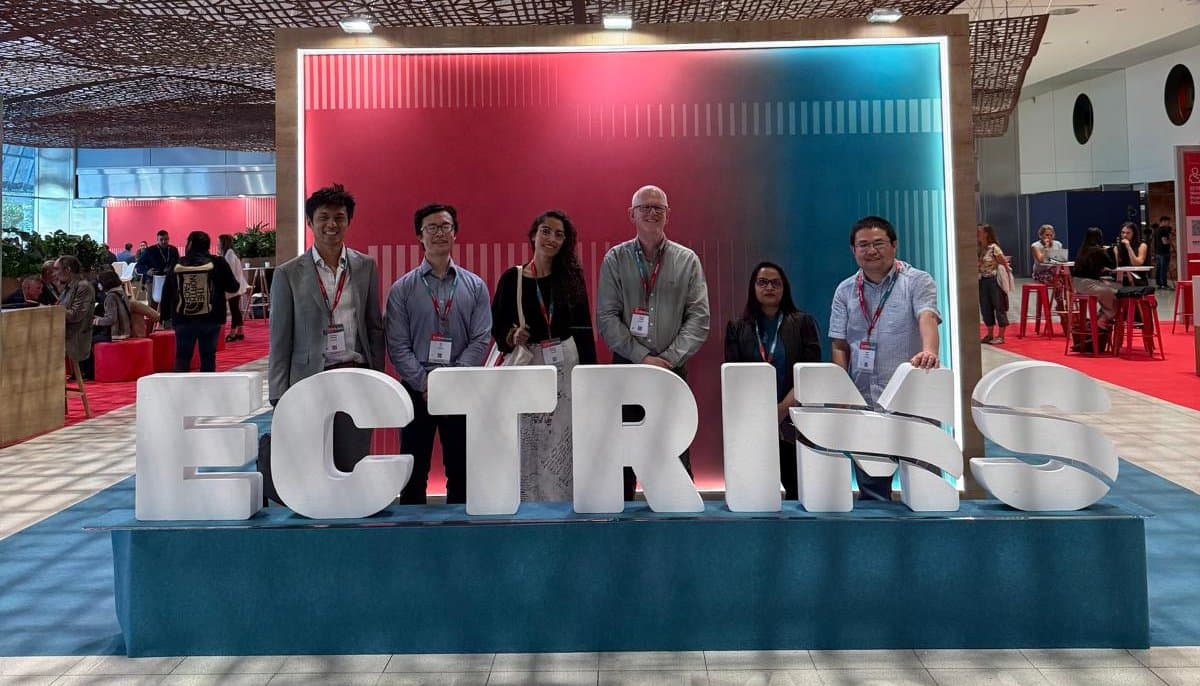MS Research Flagship at ECTRIMS 2025

In September, several of our researchers had the opportunity to present their study findings on the world stage at the 41st European Committee for Treatment and Research in Multiple Sclerosis (ECTRIMS) Congress in Barcelona, Spain.
Here’s a summary of the research they shared:
Poster presented by Bruce Taylor (co-author)
This study investigated how genetics and diet might work together to influence the risk of developing MS. Researchers looked at a genetic score that reflects a person’s tendency toward oxidative stress—a type of cell damage— and compared it with people’s adherence to a Mediterranean-style diet. The aim was to understand whether these two factors interact to affect MS onset risk.
Poster presented by Xin Lin (co-author)
This study examined how genetic differences in a protein called complement component 4 (C4), part of the immune system, may influence MS risk and progression. Using data from large cohorts, researchers analysed how variations in the C4 gene affect MS onset and disability. The goal was to identify new biological targets for future MS treatments.
Poster presented by Himanshu Saraswat (lead author)
This study explored whether rare genetic variants found in families with multiple cases of MS could help explain MS risk. Researchers sequenced the genomes of six such families to identify uncommon, potentially harmful variants. They then analysed the affected genes see if they were part of shared biological pathways, especially those related to nerve cell function. The goal was to better understand how rare genetic changes may contribute to MS.
Late-Onset Multiple Sclerosis: Do High-Efficacy Treatments Deliver Better Outcomes?
Poster presented by Yi Chao Foong (lead author)
This study examined whether people diagnosed with MS after age 50 benefit more from high-efficacy treatments compared to lower-efficacy ones. Using data from a large international registry, researchers compared relapse rates and disability progression. The aim was to guide treatment decisions for this growing group of people with late-onset MS.
Poster presented by Chhavi Asthana (lead author)
This study explored whether MS treatments, especially B cell-depleting therapies, affect the reactivation of Epstein-Barr virus (EBV), which is linked to MS risk. Researchers measured EBV levels in saliva from people with MS and healthy controls. The goal was to see if certain treatments reduce EBV reactivation, potentially explaining how they help manage MS.
Poster presented by Panteha Khaledi (lead author)
This study investigates how the immune system’s T cells respond to Epstein-Barr virus (EBV) in people with MS. Researchers analysed EBV-specific T cells to see if their function or genetic profile differs in people with MS compared to healthy controls. The aim is to understand whether poor control of EBV by T cells contributes to MS development.